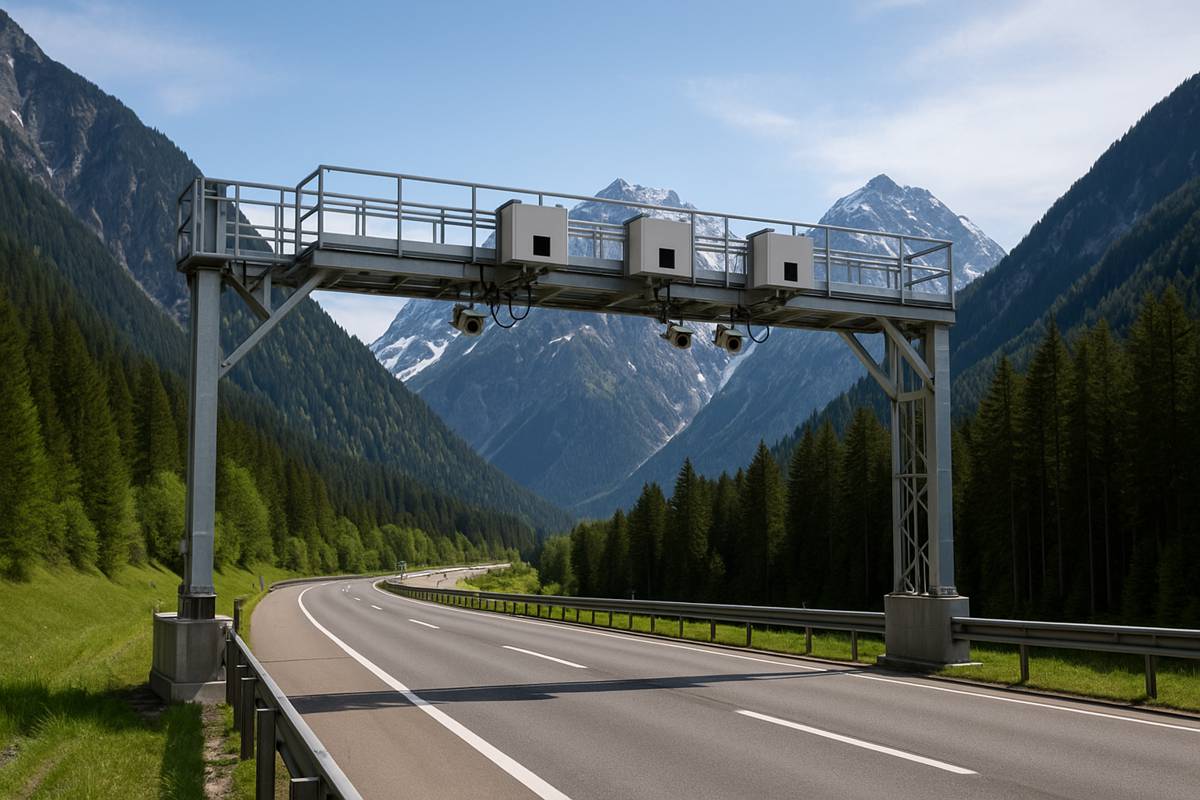Switzerland Rolls Out Next-Generation Toll Control System
Switzerland, one of Europe’s most critical transit hubs for freight traffic, is embarking on a transformative overhaul of its heavy vehicle toll collection system. Kapsch TrafficCom, a global leader in intelligent transport solutions, has begun constructing the new Swiss road collection system (ESTR), a project poised to redefine efficiency and transparency in tolling.
The initiative, signed into contract in April 2024, represents a €74.5 million investment and involves a comprehensive redesign of the infrastructure used to collect the Leistungsabhängige Schwerverkehrsabgabe (LSVA) — Switzerland’s performance-related heavy vehicle tax. This tax applies to trucks and large goods vehicles travelling on Swiss roads and is crucial for maintaining and upgrading the country’s transport network.
Strategic Importance for Transalpine Trade
Switzerland sits at the heart of Europe’s north-south freight corridor, with a third of all transalpine freight passing through its territory. Efficient toll collection is more than a fiscal necessity — it is an operational imperative to keep goods moving seamlessly across the continent.
Carolin Treichl, EVP EMEA at Kapsch TrafficCom, emphasised the significance of the project: “We are very pleased about the successful cooperation with the Swiss authorities. This will enable Switzerland, through which a third of all transalpine freight deliveries pass, to collect the tax even more comprehensively.”
By introducing cutting-edge stationary and mobile toll collection systems, Swiss authorities will be able to monitor more than 80 border crossings alongside dozens of main and secondary roads, ensuring every eligible vehicle contributes its fair share.
Advanced Tolling Technology at Work
At the heart of the ESTR project is a blend of advanced video sensor technology, robust physical infrastructure, and secure digital data processing systems. Kapsch TrafficCom is delivering both the hardware and software to make toll collection seamless, accurate, and tamper-proof.
The system will feature:
- 169 stationary monitoring sites positioned at strategic points including Swiss border crossings and key locations on both the high and low-level road network.
- 83 new support structures purpose-built to house high-definition video sensors capable of identifying vehicle type, capturing licence plate data, and recording passage time.
- 34 mobile enforcement vehicles able to operate anywhere in Switzerland, providing flexibility and coverage in hard-to-monitor locations.
- Secure data processing facilities within the Swiss Federal Office of Information Technology (BIT), ensuring privacy and reliability in tax calculation.
This combined approach allows for real-time data capture and robust auditing capabilities, minimising errors and reducing administrative disputes.
Benefits for Hauliers and the Public Purse
For the Swiss Federal Office for Customs and Border Security (BAZG), the new system means improved tax compliance and a fairer distribution of road usage costs. For haulage companies, it promises greater transparency and accuracy in billing.
By precisely documenting vehicle passages, companies can verify their charges, reducing costly disputes and ensuring that only actual road usage is taxed. This system also supports Switzerland’s environmental goals by promoting fair cost allocation for road maintenance, encouraging operators to optimise routes and vehicle loads.
A Long-Term Commitment to Operational Excellence
The project timeline is ambitious. The design and construction phase, along with pilot operations, will run until the end of 2025. Full-scale operation and maintenance will continue for eight years, taking the project to the end of 2033. An option to extend the contract until 2035 underscores both parties’ commitment to long-term collaboration.
This sustained operational phase ensures not only the continued reliability of the technology but also the capacity for iterative improvements as mobility patterns and technology evolve.
Kapsch TrafficCom’s Global Footprint
Kapsch TrafficCom is no stranger to large-scale, high-stakes transport infrastructure projects. With successful deployments in more than 50 countries, the Vienna-headquartered company has built a reputation for delivering comprehensive, end-to-end mobility solutions.
Its portfolio spans tolling systems, traffic management platforms, and urban mobility solutions — all designed with sustainability in mind. In the 2024/25 financial year, over 3,000 employees across more than 25 countries generated revenues of €530 million, underscoring the company’s scale and capability.
By leveraging this global expertise, Kapsch is well-positioned to ensure Switzerland’s tolling infrastructure remains at the forefront of European mobility innovation.
A Broader Vision for Sustainable Mobility
While toll collection is the immediate focus, the ESTR project fits into a larger vision of reducing congestion, enhancing traffic flow, and ensuring sustainable mobility across Switzerland’s diverse terrain.
Kapsch’s holistic approach to transport infrastructure — offering design, manufacturing, integration, and long-term operation — allows it to adapt solutions for evolving transportation demands. This is particularly relevant in Switzerland, where balancing freight efficiency with environmental protection is a policy priority.
Building a Fairer, Smarter Road Network
By the time the ESTR project reaches full operation, Switzerland will have one of the most advanced heavy vehicle tolling systems in the world. It will serve as a model for other transit-heavy nations grappling with the dual challenges of maintaining infrastructure and enforcing fair taxation.
The combination of cutting-edge technology, strategic coverage, and secure data handling sets a high standard for how nations can balance trade efficiency with fiscal responsibility.





























